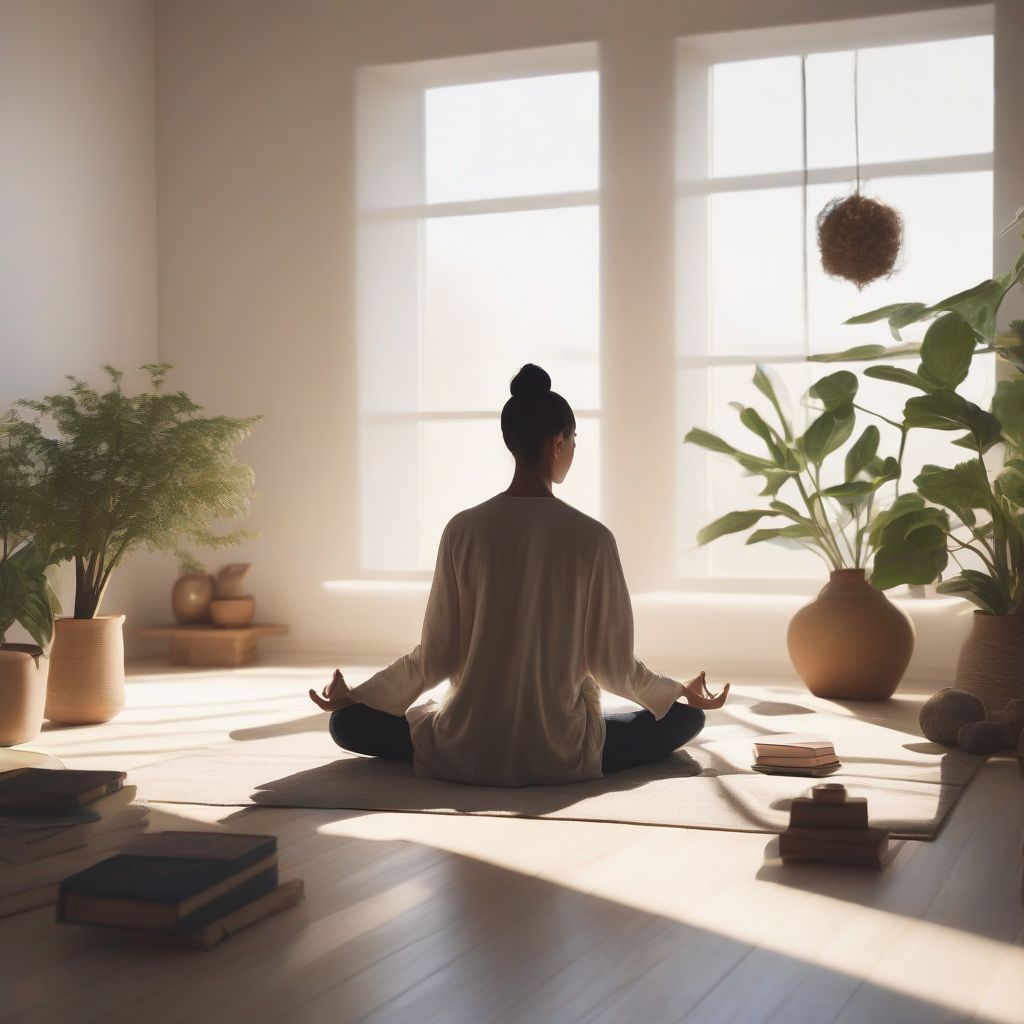Have you ever felt that nagging sense of emptiness, even when surrounded by a mountain of possessions? You’re not alone. In today’s hyper-consumerist society, we’re bombarded with messages urging us to buy more, have more, be more – all through the acquisition of stuff. But true fulfillment rarely comes from a shopping spree. This article explores how to break free from consumerism mindfully, cultivating a more intentional and fulfilling life.
Understanding the Consumerist Mindset
Before we can break free, it’s important to understand what we’re up against. Consumerism isn’t just about buying things; it’s a mindset that equates happiness and self-worth with material possessions. This mindset is fueled by clever marketing tactics that prey on our insecurities and desires. We’re constantly told that the next gadget, the latest fashion trend, or the newest car will finally make us happy. This creates a cycle of wanting, buying, and then wanting something else – a cycle that can be difficult to break.
Recognizing the Triggers
Identifying your personal triggers is crucial. Are you prone to impulse buys when you’re feeling stressed or down? Do you shop to keep up with friends or social media trends? Recognizing these patterns is the first step towards conscious consumption. As a certified nutritionist and meal prep coach, I see this often with food. People reach for processed foods, driven by marketing and convenience, rather than nourishing their bodies with mindful choices.
Practical Steps to Mindful Detachment
Breaking free from consumerism requires conscious effort and a shift in perspective. Here are some practical steps you can take:
Cultivate Gratitude
Take time to appreciate what you already have. A gratitude journal can be a powerful tool. Listing the things you’re grateful for helps shift your focus from what you lack to what you possess, fostering contentment and reducing the desire for more.
Question Your Needs vs. Wants
Before making a purchase, ask yourself: “Do I truly need this, or do I just want it?” This simple question can be surprisingly effective in curbing impulse buys. Think about the long-term value and utility of the item, not just the fleeting satisfaction it might bring.
Embrace Minimalism
Minimalism isn’t about living in an empty house; it’s about intentionally choosing what you bring into your life. Decluttering your physical space can also declutter your mind, creating a sense of calm and clarity. Start small, perhaps with one drawer or shelf, and experience the liberating feeling of letting go.
Set Spending Limits and Budgets
Creating a budget isn’t just about managing your finances; it’s about taking control of your spending habits. A budget forces you to be mindful of where your money is going and helps you prioritize your spending based on your values.
Find Joy in Experiences, Not Things
Studies have shown that experiences bring more lasting happiness than material possessions. Invest in memories, not things. Instead of buying the latest gadget, consider a weekend trip, a cooking class, or a concert.
Repair and Repurpose
Before discarding something, consider if it can be repaired or repurposed. This not only saves you money but also reduces waste and promotes sustainability. This aligns with the growing “repair cafe” movement, fostering community and reducing our environmental impact.
The Role of Mindfulness
Mindfulness plays a critical role in breaking free from consumerism. By being present in the moment, we become more aware of our thoughts, feelings, and impulses. This awareness allows us to make conscious choices about our spending habits, rather than being driven by unconscious desires or external pressures. Practicing mindfulness techniques, such as meditation or mindful breathing, can help cultivate this awareness.
Building a Supportive Community
Surrounding yourself with like-minded individuals can reinforce your commitment to mindful consumption. Join online forums, attend local workshops, or connect with friends who share your values. Sharing experiences and tips can provide encouragement and accountability.
The Benefits of Breaking Free
Breaking free from consumerism offers a multitude of benefits, including:
- Increased Financial Freedom: Less spending means more money for experiences, investments, or simply peace of mind.
- Reduced Stress and Anxiety: Letting go of the constant pursuit of “more” can significantly reduce stress and anxiety.
- Greater Environmental Awareness: Mindful consumption often leads to a greater appreciation for the environment and a desire to live more sustainably.
- Enhanced Self-Esteem: Defining your self-worth based on your values and experiences, rather than material possessions, leads to a stronger sense of self.
- Deeper Fulfillment: Focusing on experiences, relationships, and personal growth leads to a more meaningful and fulfilling life. As the renowned minimalist Joshua Becker said, “The secret to happiness is not found in seeking more, but in developing the capacity to enjoy less.”
 Breaking Free from Consumerism
Breaking Free from Consumerism
Conclusion
Breaking free from consumerism is a journey, not a destination. It requires ongoing awareness, intentionality, and a willingness to challenge the status quo. By cultivating mindfulness, questioning our consumption habits, and focusing on what truly matters, we can create a life that is richer in experiences, relationships, and personal growth. Start small, be patient with yourself, and celebrate your progress along the way. What steps will you take today to break free and live more mindfully? Share your thoughts and experiences in the comments below.



